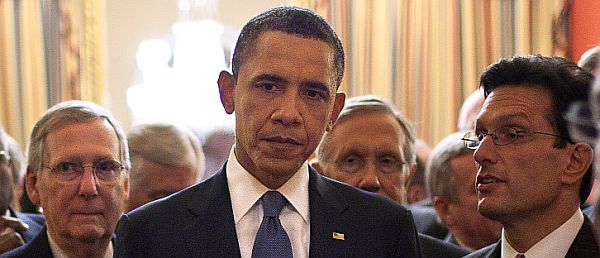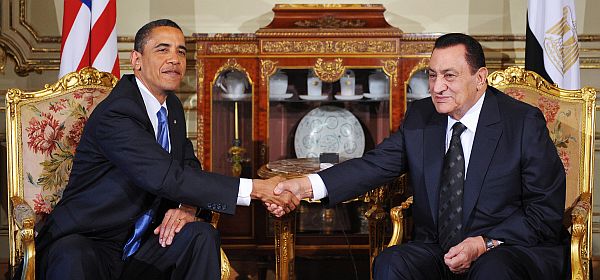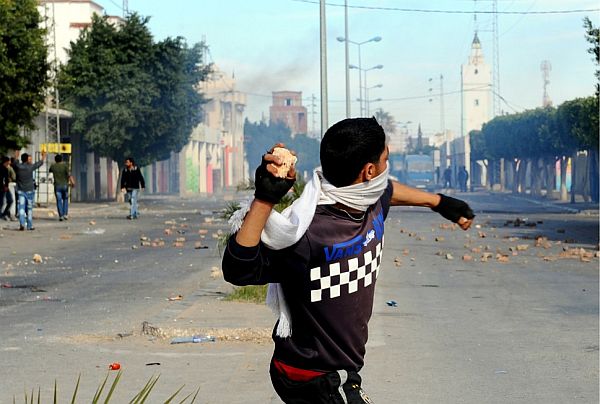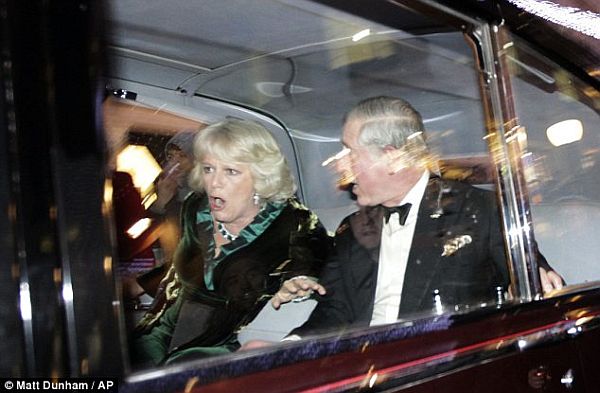Carne Ross has provided one of the most concise and cogent analyses of the impact of the WikiLeaks cables release and concludes that the challenge this event has thrown up can only be met with one solution: “that governments must close the divide between what they say, and what they do.”
A knee-jerk response to the prospect that diplomacy might not enjoy the confidentiality that it supposedly requires has been the assertion that this confidentiality is the basis of trust. Confidentiality, we are told, fosters candor. Behind closed doors, everyone becomes honest. Right.
On the contrary, what the cables actually reveal is what one might expect: that absent the political accountability that comes from publicly declaring ones objectives, confidentiality provides space for adventurism and for the promotion of policies that might be disowned if ever made public.
The cables reveal leaders across the Middle East — leaders all of whom have been blessed by the United States as “moderates” — whose overriding interest is the protection of their own autocratic power in the name of American-backed “regional stability.”
Even when it comes to candid assessments delivered by diplomats to their own government, such honesty often comes loaded with bias. Consider, for instance, this cable from Ambassador James Jeffrey while he served in Ankara. Referring to the foreign policy objectives outlined by Turkey’s foreign minister Ahmet Davutoglu representing the ruling AKP, Jeffrey writes sourly:
[T]he AKP’s constant harping on its unique understanding of the region, and outreach to populations over the heads of conservative, pro-US governments, have led to accusations of “neo-Ottomanism.” Rather than deny, Davutoglu has embraced this accusation. Himself the grandson of an Ottoman soldier who fought in Gaza, Davutoglu summed up the Davutoglu/AKP philosophy in an extraordinary speech in Sarajevo in late 2009 (REF A). His thesis: the Balkans, Caucasus, and Middle East were all better off when under Ottoman control or influence; peace and progress prevailed. Alas the region has been ravaged by division and war ever since. (He was too clever to explicitly blame all that on the imperialist western powers, but came close). However, now Turkey is back, ready to lead — or even unite. (Davutoglu: “We will re-establish this (Ottoman) Balkan”).
If Hillary Clinton did not rely on her ambassador’s confidential opinion but actually read Davutoglu’s speech, she might have come to a different conclusion.
The Turkish foreign minister said: “We want to have a new Balkan region, based on political dialogue, economic interdependency and cooperation, integration and cultural harmony and tolerance.”
The thrust of his argument was that the Balkans had thrived not by virtue of Ottoman rule per se, but because of the dynamism fostered by “multicultural coexistence.” Likewise, he portrayed contemporary Turkey’s strength as being multicultural: “Turkey is a small Balkan, a small Middle East, a small Caucasus. We have more Bosnians living in Turkey than in Bosnia, more Albanians living in Turkey than in Albania, more Chechens living in Turkey than in Chechnya, more Abkhazians living in Turkey than in Abkhazia, and we have Kurds, Arabs, Turks together.”
Is this the perspective of a man enthralled by a romanticized Ottoman golden age, or is Davutoglu offering a glimpse at the kind of multicultural future on which the region and the world surely depends?
But enough of my preamble — here’s what Ross writes:
It will take a long time, perhaps many years, for the full impact of the WikiLeaks disclosure of thousands of US diplomatic cables to become known. Make no mistake: this is an event of historic importance — for all governments, and not only the US.
As politicians of all sides bellow their condemnation of WikiLeaks, governments are with some desperation trying to pretend that it’s business as usual. But the truth is that something very dramatic in the world of diplomacy has just taken place, and thus indeed in the way that the world runs its business. History may now be dated pre- or post-WikiLeaks.
The mainstream press has as usual missed the story, with their obsession with Iran or Qaddafi’s voluptuous nurse or Karzai’s corruption — which, incidentally, is reported by US diplomats in excruciating detail. But this event carries a much deeper significance than merely the highly-embarrassing and in some cases dangerous revelations in the enormous trove of documents. No one, and neither the US State Department nor WikiLeaks, can say with any confidence whether the effects of this massive disclosure will be good or bad, for in truth no one can know. There will be many and long-lasting consequences. That is all that can be known with any certainty at this point.
The presumption that governments can conduct their business in secret with one another, out of sight of the populations they represent, died this week. Diplomats and officials around the world are slowly realizing that anything they say may now be one day published on the Internet. Governments are now frantically rushing to secure their data and hold it more tightly than ever, but the horse has bolted. If a government as technically sophisticated and well protected as the US can suffer a breach of this magnitude, no government is safe. Politicians can demand the prosecution of Julian Assange or — absurdly — that WikiLeaks be designated as a terrorist organization, but the bellows of anger are tacit admission that government’s monopoly on its own information is now a thing of the past.
Hillary Clinton has described the WikiLeaks disclosures as an attack on the “international community.” But in truth this is something else: an attack on the governments that make up the current international system of diplomacy. The deep-seated assumption, both among the public and political classes, that governments have business that they should conduct in secret with one another has been shattered. Pause, incidentally, to observe the politicians and commentators declaring the need for governments to operate in secrecy, when they don’t even know what government is keeping secret. From this day forward, it will be ever more difficult for governments to claim one thing, and do another. For in making such claims, they are making themselves vulnerable to WikiLeaks of their own.
Why? Because the most damaging thing about the WikiLeaks disclosures is not the fact that they happened (though this is bad enough for the US government) but the revelation, long suspected but now proven, of the yawning discrepancy between US words and actions in that most contested area, the Middle East. Cable after cable details the extraordinarily intimate and co-dependent relations between the US and various despotic and unpleasant Arab regimes. One Arab intelligence chief plots with American officials to target Iranian groups, or confront Hezbollah. Another undemocratic Arab leader invites US bombers to attack targets in his own territory. It is this discrepancy — between word and deed — that will keep the wind in WikiLeaks’ sails, and others like them, for long to come.
Governments around the world are this week telling each other that nothing has really changed and that if they restrict the circulation of those really sensitive telegrams and glue up all the USB slots in their computers, that this won’t happen to them. But it will. There will be more such revelations, not about the US (which so far has been the main target of WikiLeaks’ somewhat arbitrary attentions), but others — British, Chinese? — for the reality is that electronic data is formidably difficult to protect.
The reason is simple. In order to be effective as organizations, governments and foreign offices are required to circulate sensitive data, so that their officials and diplomats actually know what’s going on. One reason why the UN is ineffective as an organization is because nothing is secret there, and as a result no one circulates anything sensitive. Don’t buy the argument that the really important stuff is kept Top Secret and hasn’t been compromised. Even a cursory perusal of the WikiLeaks archive reveals cables that are the very meat and drink of diplomacy — what foreign leaders and governments really think, and what they really want in their relations with the US.
Governments are therefore confronted with an insoluble conundrum. If they restrict and protect the data, and perhaps even stop recording the most delicate information (as no doubt some diplomats are now considering), they will inevitably reduce their operational effectiveness. If they circulate the data widely, as the US did before WikiLeaks, they will risk compromise on this devastating scale.
There is in fact only one enduring solution to the WikiLeaks problem and this is perhaps the goal of WikiLeaks, though this is sometimes hard to discern. That is that governments must close the divide between what they say, and what they do. It is this divide that provokes WikiLeaks; it is this divide that will provide ample embarrassment for future leakers to exploit. The only way for governments to save their credibility is to end that divide and at last to do what they say, and vice versa, with the assumption that nothing they may do will remain secret for long. The implications of this shift are profound, and indeed historic.







 Here’s one example of the intimidation of peaceful protest by the young that is happening all over Britain. Nicky Wishart is a 12-year-old self-described “maths geek” who lives in the heart of David Cameron’s constituency. He was gutted when he found out his youth club was being shut down as part of the cuts: there’s nowhere else to hang out in his village. He was particularly outraged when he discovered online that Cameron had said, before the election, that he was “committed” to keeping youth clubs open. So he did the right thing. He organized a totally peaceful protest on Facebook outside Cameron’s constituency surgery. A few days later, the police arrived at his school. They hauled him out of his lessons, told him the anti-terrorism squad was monitoring him and threatened him with arrest.
Here’s one example of the intimidation of peaceful protest by the young that is happening all over Britain. Nicky Wishart is a 12-year-old self-described “maths geek” who lives in the heart of David Cameron’s constituency. He was gutted when he found out his youth club was being shut down as part of the cuts: there’s nowhere else to hang out in his village. He was particularly outraged when he discovered online that Cameron had said, before the election, that he was “committed” to keeping youth clubs open. So he did the right thing. He organized a totally peaceful protest on Facebook outside Cameron’s constituency surgery. A few days later, the police arrived at his school. They hauled him out of his lessons, told him the anti-terrorism squad was monitoring him and threatened him with arrest.